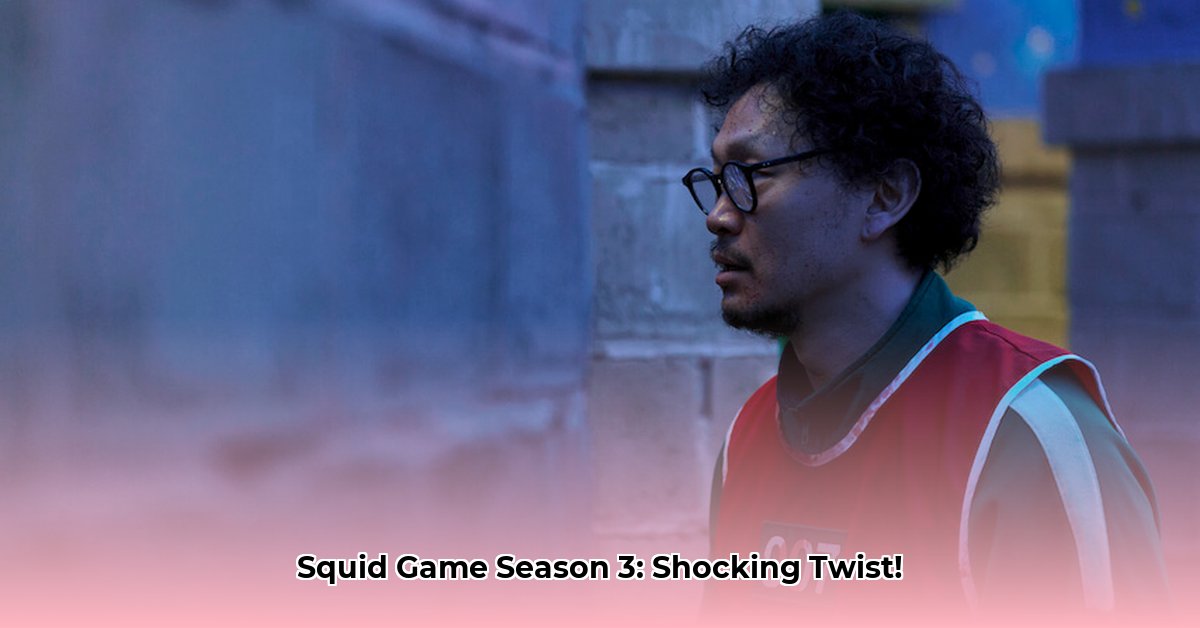
"The Starry Night," the second episode of Squid Game Season 3, has sparked a right old kakophony on Reddit, proving the show still knows how to leave us gasping for air. This ain't your average episode recap; we're diving deep into the drama, dissecting the genius game design, and wrestling with the episode's more controversial moments. Get ready to join the conversation, tjop!
Decoding "The Starry Night": More Than Just a Game
"The Starry Night" isn't just another deadly game; it's a tightly wound spring of suspense, ticking towards a brutal climax. This "Hide and Seek" isn't the childhood version you remember; it's a fight to the death with multiple keys, uneven resources, and enough tension to make your veldskoene squeak. Reddit is abuzz with chatter about the cleverness of the game's design, the sheer brutality, and the unsettling social commentary subtly woven into the fabric.
The Game Mechanics: A Masterclass in Tension
The game's complexity is what makes it so compelling. It's not just about skill; it’s about strategy, ruthlessness, and a bit of bloody luck. The uneven distribution of resources immediately throws the playing field into chaos, forcing uneasy alliances and desperate gambles. Think of it as a twisted reflection of our own socioeconomic inequalities – the rich getting a head start while the poor fight tooth and nail for survival. Has Squid Game ever been this cleverly brutal? Is this the most socially relevant episode yet? The debate rages on!
Gi-hun's Journey: Trauma, or Just Too Much?
Gi-hun's emotional baggage is front and centre. His lingering trauma from the previous season weighs heavily on his decisions, impacting both his gameplay and relationships. While some viewers appreciated the realistic portrayal of PTSD, many others found it slowed things down, disrupting the momentum. This leads to a rather interesting debate – is the emotional depth adding layers, or is it an overdone subplot? The answer, as with most things Squid Game, is probably a bit of both.
Did Squid Game Find its Mojo Again?
The short answer? Ja. This episode is a powerful reminder of just how good Squid Game can be. The intensity is ratcheted up to eleven, the social commentary is sharper, and the unsettling juxtaposition of childlike imagery and sheer gore really leaves a lasting impression. Is this the best episode yet? Many on Reddit seem to think so.
The Good, the Bad, and the "Huh?": A balanced perspective
Even braai masters make mistakes, and Squid Game is no exception.
| Feature | Pros | Cons |
|---|---|---|
| Game Mechanics | Clever, strategic, intensely suspenseful, insightful social commentary | Could be too complex for some viewers |
| Character Development | Shows the realistic effects of trauma but allows for deeper understanding of character motivations | Gi-hun's arc; some feel it's overdone, slowing down the action and getting a bit predictable |
| Overall Impact | Re-ignited interest in the series, exceeded expectations for many, unforgettable viewing experience | Some might feel a slight narrative fatigue, especially after the first two seasons |
Unpacking "The Starry Night"'s Social Commentary: A Deeper Dive
"The Starry Night" isn't just about death; it's a mirror reflecting some pretty harsh truths about society. The game mechanics themselves are a masterclass in creating a microcosm of societal inequalities. The unequal distribution of resources, the constant pressure to betray, and the psychological toll amplify the real-world inequalities many face.
Key Takeaways from the Reddit Frenzy:
- The episode prioritises visceral individual survival over broad strokes of social commentary.
- The game design actively fosters a ruthless, unstable environment.
- Betrayal and shifting alliances highlight the fragility of trust in high-stakes situations.
- The episode meticulously showcases the psychological traumas and moral compromises of survival.
- The title's ironic contrast underscores the juxtaposition of beauty and brutal violence.
The Reddit reaction to "The Starry Night" is a testament to Squid Game's enduring power to provoke, challenge, and ultimately, captivate. What are your eie's on this episode? Let's hear them in the comments!